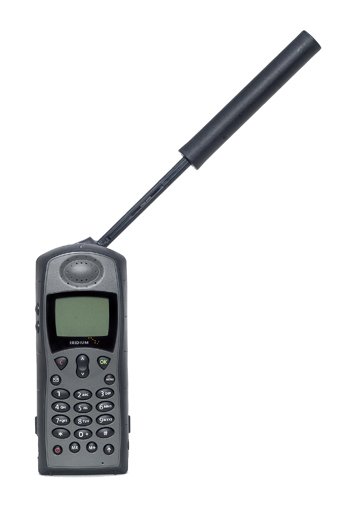
Although it was not quite like a land line or cell phone and required more patience, determination and effort than regular phones, in remote areas like the bush it was invaluable and the sound quality was often agreeable enough for a conversation, especially if there was no wind. The challenges were inclement weather like rain and strong winds (it was difficult to use during the evenings which sometimes was when we wanted to call to take advantage of the seven hour or more time difference). Sometimes the signal was weak, the connection was garbled or cut off; overall persistence paid off and we were usually able to pick up voicemail messages (and input password codes), make regular phone calls, receive one or two text messages and connect briefly with the Internet using the data kit.
Thanks to the low orbit satellite network, we were able to make (and receive) calls from any place with clear skies (we understand three countries ban the service). Other challenges, were connectivity issues, poor reception, calls dropped, the cost of inbound calls and the public’s refusal to call a satellite phone number. On the plus side there was phone number where we could receive calls when the phone was on and messages after hours, when reception was weak or it was inconvenient to have it switched on. Most lodges and camps we visited had restrictions on satellite phone use. They were only allowed in our rooms and open areas (not on game drives or common areas).
When making calls, the flat rate fees were convenient and easy to keep track of. It was nice to know there was customer support if we ran into trouble. The data link capability was limited. We were able to connect to the Internet several times. However, connections were unreliable and dropped frequently, no Outlook downloads were possible due to the low speed and surfing was so slow as to be almost without benefit. The 9505A is significantly smaller, lighter and more resistant to water, dust and shock than Iridium’s original Iridium 9500. It seemed better suited for the conditions we encountered in remote areas of the bush and worked well in the cities (Cape Town, Johannesburg, Port Elizabeth in Africa and Boca Raton, U.S.A.) too.
Complete Kit Content SIM card, High Capacity Lithium Ion Battery, AC adaptor, international plug set, made in Germany cigarette lighter adaptor (input 10-32V, output 6V/800mA), Eastern Pack black carrying case with shoulder strap, leather holster, portable auxiliary antenna, instructions and a data kit which consisted of a short data cable, a software CD and a tripod to stand the phone.*
Made In U.S.A. (future models are to be manufactured in Malaysia)
Manufacturer-Distributor Motorola and Iridium
Retail Price $1899 (available for rent or purchase) or $75 for a week rental plus air time
Size 158L x 62W x 59D mm
Talk Time 38 hours of standby time 3 hours of talk time
Type Of Product Satellite phone
Weight 1 lb with the leather holster on
Calling features: Auto redial notification, call barring, call forwarding, mobile subscriber busy, subscriber not reachable, clear last digit/clear all digits, fixed dialing international access key sequence (+ key) mailbox for numeric and text (120 characters), access interface, selectable keypad tone (3 choices), selectable ringer tone (10 choices), keypad disable and unanswered call indicator.
*Because we didn’t have a serial port (most new computers don’t) we had to get a USB serial adaptor to connect from the data kit to the Internet.
Date Of Review October to November 2005
Number Of Days Tested One month
ReviewersArticle by Elena del Valle
Would You Use This Product Again? Yes for the phone, maybe for the data kit
Contact Information
- WCC Global Satellite Communications
- 1347 N. Alma School Road, Ste 150
- Chandler, AZ 85224
- +1-480-857-6656
- +1-800-211-2575
- +1-480-857-6898
- +1-800-851-0740
- http://www.wcclp.com/rentals